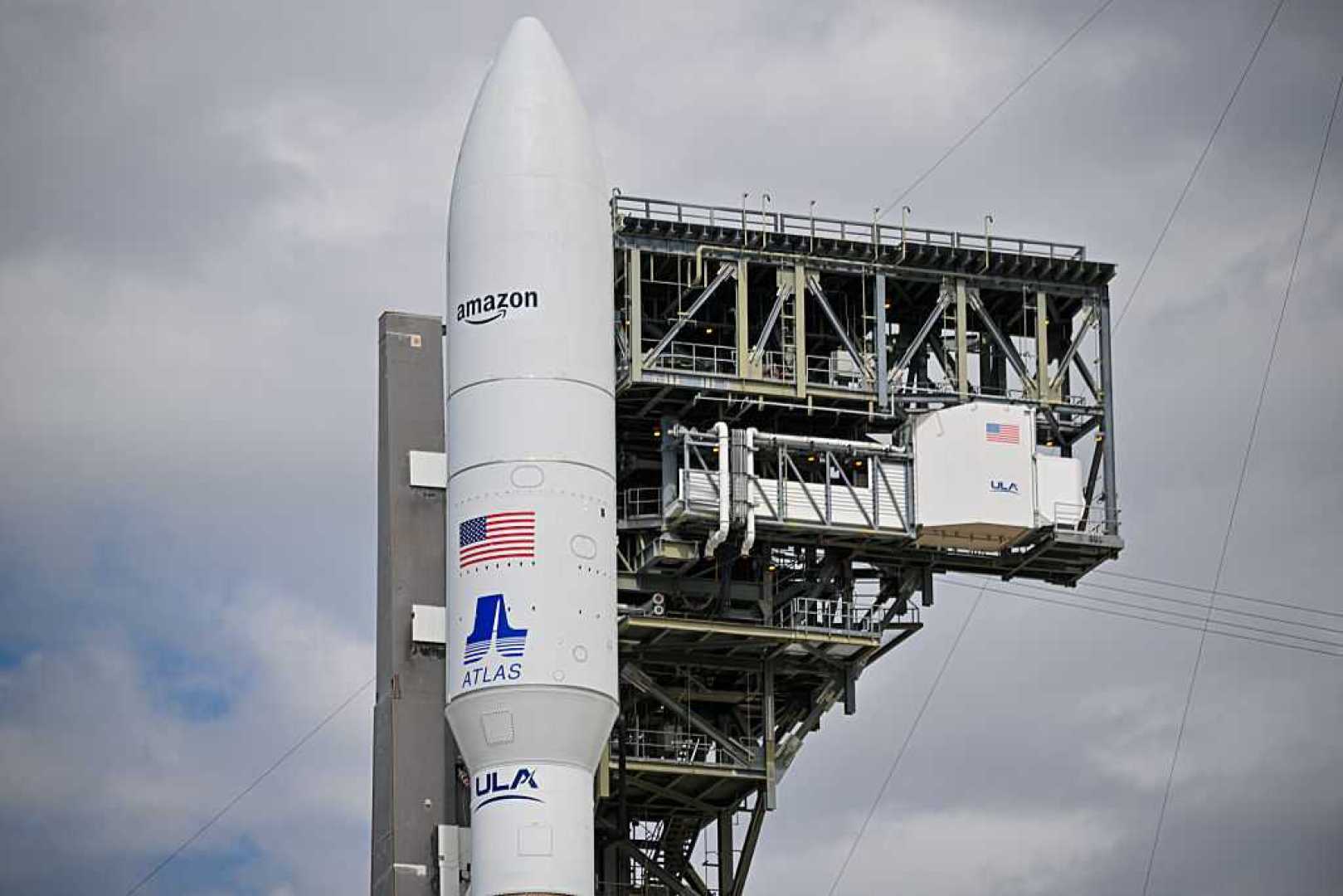Tech
Amazon’s Kuiper Internet Satellite Launch Delayed by Bad Weather

CAPE CANAVERAL, Florida — Amazon‘s inaugural launch of its first 27 Kuiper internet satellites was postponed Wednesday night due to inclement weather conditions, according to the launch provider, United Launch Alliance (ULA). The Atlas V rocket, prepared for liftoff, was set to take off from Cape Canaveral Space Force Station when countdown operations were halted due to “stubborn cumulus clouds” and strong winds.
ULA confirmed that the weather forecast was “NO GO for liftoff within the remaining launch window at Cape Canaveral this evening,” as noted during a livestream update by Launch Weather Officer Brian Belson. The initial two-hour launch window had opened at 7 p.m. Eastern Time, but adverse conditions prevented any chance of a successful launch.
Amazon first disclosed its plans for Project Kuiper six years ago, envisioning a constellation of over 3,200 satellites in low Earth orbit aimed at providing high-speed, low-latency internet access to diverse customers including consumers, corporations, and governments. The project aspires to bridge the digital divide by delivering connectivity to underserved areas globally.
Despite the weather setback, time is of the essence for Amazon to comply with the Federal Communications Commission‘s (FCC) mandate requiring 1,618 satellites to be in orbit by July 2026. This compliance is vital for maintaining regulatory clearance and avoiding penalties.
A $10 billion commitment from Amazon underscores its serious intent to compete in the satellite internet market, largely dominated by SpaceX‘s Starlink service, which already has approximately 8,000 satellites operating in orbit. Industry analyst Mahdi Eslamimehr from Quandary Peak Research suggested, “Amazon has made extensive launch agreements with major providers such as ULA, Arianespace, Blue Origin, and even SpaceX itself, positioning Kuiper as a major challenger due to its expansive infrastructure and significant resources.”
The company intends to launch commercial services later this year, contingent on successful deployments and the completion of the first launch. Following this, Amazon anticipates speeding up production and deployment rates. Currently, preparations are underway for an additional mission using one of ULA’s Atlas V rockets.
In an earlier test mission in October 2023, Amazon successfully launched two prototype Kuiper satellites, signaling the project’s progress toward full operational capacity. With positive evaluations from initial trials, there is growing optimism regarding the functionality of Kuiper’s satellite technology.
As ULA and the Eastern Range work to establish a new launch date, Amazon’s stakeholders are assured the company is actively monitoring weather conditions and will release updates as they develop. The next steps in this ambitious project carry significant implications for the satellite internet market, where competition is expected to drive down prices and improve service quality for consumers, especially in rural and hard-to-reach locations.
As the anticipation builds surrounding Amazon’s satellite launches, analysts emphasize the importance of Project Kuiper in reshaping global connectivity. With deadlines looming and new technologies being tested, the race for satellite internet service remains an intriguing aspect of the tech landscape.












